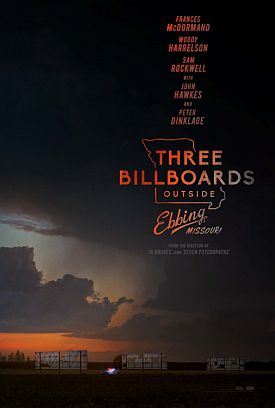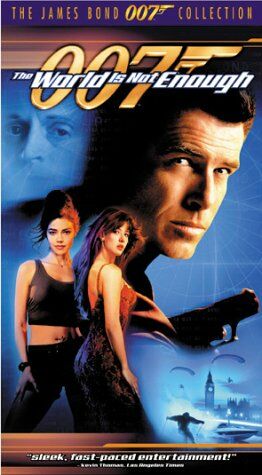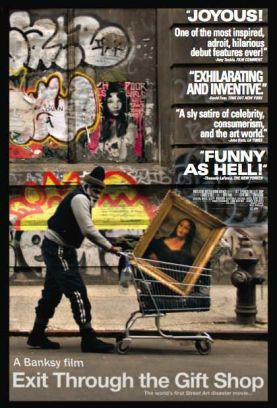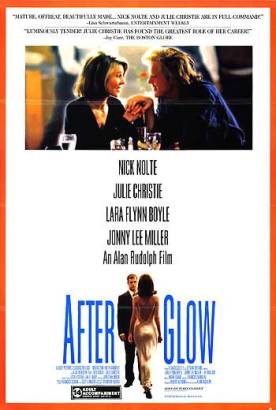Three Billboards Outside Ebbing, Missouri
It’s best to think of Three Billboards Outside Ebbing, Missouri as a sort of cinematic parable about forgiveness — both of others and of ourselves. But I’m sorry to say that many viewers who hope for a spiritual experience will be put off by the mannerisms of its Anglo-Irish writer-director, Martin McDonagh, already on display in his earlier film, In Bruges (2008). The comic treatment of murder and guilt in that film was less grating, at least to my eye, because of its exotic setting in the medieval city of Bruges, Belgium, and the fact that the two main characters were stage Irishmen. “The great Gaels of Ireland are the men that God made mad,” wrote Chesterton, “For all their wars are merry, and all their songs are sad.” That kind of light-heartedness applied to serious things does not transplant well to middle America, I’m afraid. Ireland we Americans can believe in, like Bruges, as a sort of medieval fairyland. Missouri, not so much.
The basic idea is that the heroine, Mildred Hayes (Frances McDormand) is badgering the police in her fictional Missouri town by putting up the eponymous billboards taunting them, and police Chief Willoughby (Woody Harrelson) by name, with having failed to catch the man who raped and murdered her teenage daughter some months earlier, and urging them to further efforts. Mildred is the sort of feisty, foul-mouthed dame who gives feistiness a bad name, but we are meant to cut her a lot of slack because of her own sense of guilt about her daughter’s death and her having been ill-used by her ex-husband, Charlie (John Hawkes) who has left her for 19-year-old zoo-attendant Penelope (Samara Weaving), whose gifts apart from her kindness to animals appear to be limited to her youth.
But Chief Willoughby is also an object of compassion because he is dying of cancer — though this doesn’t bother Mildred at all. She already knew about his illness, she tells him, and put the billboards up anyway because “they wouldn’t be as effective after you croaked.” The Chief, perhaps because he has other things on his mind, doesn’t really mind so much about them, but this is not true of Officer Jason Dixon (Sam Rockwell) who hero-worships him but who makes Penelope look like a brainiac by comparison. When he pistol-whips the young man from the billboard company (Caleb Landry Jones) and throws him out of a second-story window, he is kicked off the force. Right from the beginning he is said to have a history of abusing black prisoners. “So how’s it all going in the nigger-torturing business, Dixon?” Mildred asks him.
“It’s ‘Persons of color’-torturing business, these days, if you want to know,” he replies. “And I didn’t torture nobody.”
Dixon is obviously set up to be the main hate-figure of the movie, but — spoiler alert and all — even he proves to be not beyond redemption by the time that Mildred is able to forgive herself, though this only happens after she is forced to swallow the progressively bitterer pills of forgiving Chief Willoughby, Charlie and Penelope. For a woman who seems only to thrive on hatred, this is obviously a pretty big deal, but the multiple implausibilities of the mise-en-scène and of her character, which looks more like a feminine version of the two Irish hit-men in In Bruges than a Missouri housewife, don’t do a thing to make her spiritual progress believable. Nor does her gratuitous and monstrously unfair attack on the Catholic Church which has nothing to do with anything else in the movie but has only been put there to allow Mr McDonagh to vent his own spleen.
Ten years on from In Bruges and a quarter of a century from the early films of Quentin Tarantino, who was the first to exploit the shock value of treating murderous brutality and thuggishness as matter for comedy, you would think that that kind of thing would have begun to pall. But Three Billboards and its stars have been nominated for numerous awards and, at this writing, both Miss McDormand and Mr Rockwell have won them for acting and the movie has won Golden Globes and Baftas as best picture — something that can only be attributed to the acting profession’s being total suckers for anyone who can write snappy, witty dialogue. That Mr McDonagh can do, although it is a talent that only gets in his way when he tries on the mask of moral seriousness.
Discover more from James Bowman
Subscribe to get the latest posts to your email.








